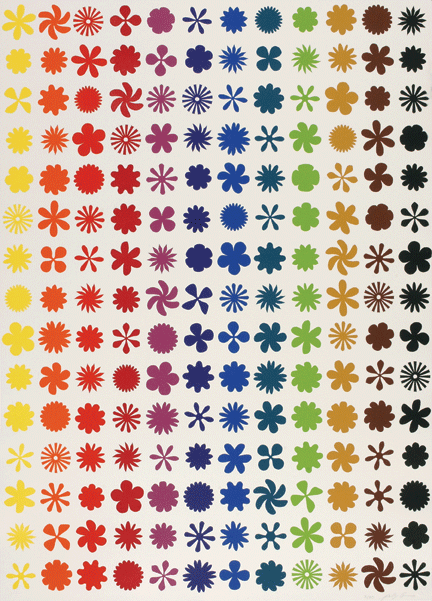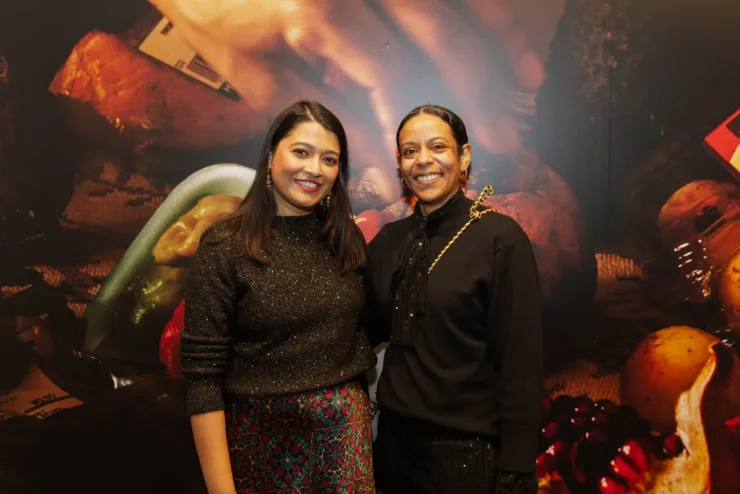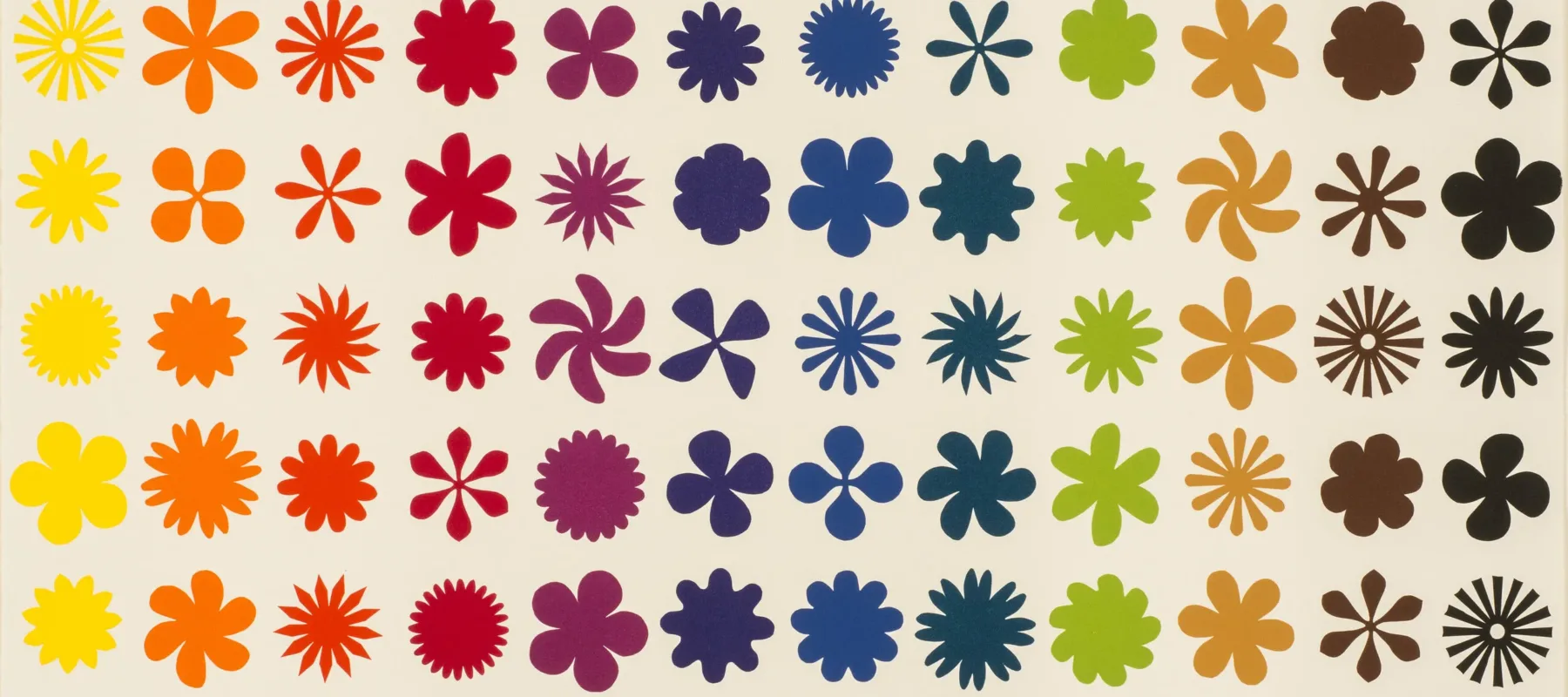
Polly Apfelbaum was born in 1955 in Abington, Pennsylvania. After graduating in 1978 from the Tyler School of Art in Pennsylvania, Apfelbaum moved to New York, where she supported herself with a variety of jobs, including working as a researcher for a cable television show and as a clerk in a museum bookstore. In 1984, she moved to Madrid with her husband, Stan Allen, an architect, and Columbia University professor. During this time, Apfelbaum began creating artwork that emphasized simple shapes and a sense of formal clarity. Upon returning to New York a year later, Apfelbaum’s work debuted at a small gallery in the East Village. Today she and husband live in Lower Manhattan, on the third floor of an old seaport warehouse.
NMWA’s current exhibition, Pressing Ideas: Fifty Years of Women’s Lithographs from Tamarind, will feature one of Polly Apfelbaum’s most recent works, Rainbow Love Mountain Ranch, New Mexico (2007). Building on the theme of flowers, which she regularly incorporates into her work, Apfelbaum draws much her inspiration from The Powerpuff Girls, the 1998–2005 Cartoon Network series about crime-fighting kindergartners. The characters’ bold colors and distinct personalities embody what Apfelbaum considers a positive representation of femininity: simultaneously girly, tough, beautiful, and cunning, descriptors that can also be applied to Apfelbaum’s work.(2)
While feminism does influence her work to a certain degree, Apfelbaum ultimately wants viewers to appreciate its formal qualities, including her complex use of color and its effect on light and space. Polly Apfelbaum’s Rainbow Love Mountain Ranch, New Mexico will be on view at NMWA June 17, 2011–October 2, 2011.
1. Deidre Stein Greben, “Stain Power: with pieces of dyed velvet, Polly Apfelbaum transforms painting into sculpture and beauty into strength,” ARTnews (June 2001), 102 -105.
2. Meghan Dailey, “Polly Apfelbaum, ‘Powerpuff’,” Time Out New York 270 (November 20-23, 2000)

